- Local Time: 02:42 AM
- Weather: 24 ℃ / 76 ℉
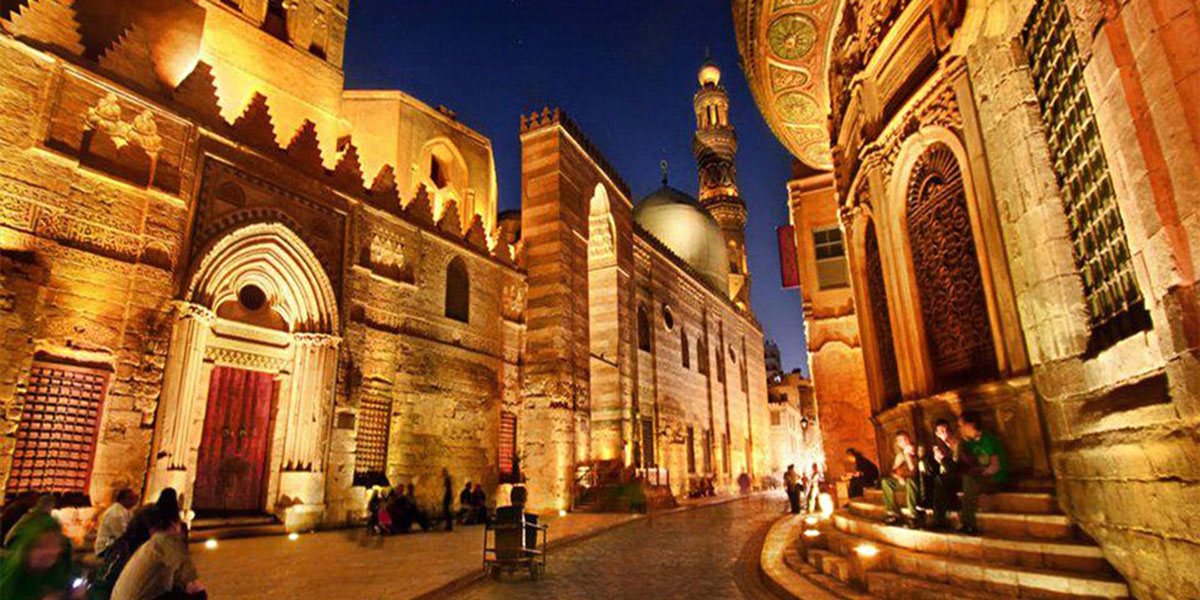
Egyptian culture and Tradition are the core of Egyptian society and provide a unique experience for every traveler. The goal of this article is to provide every traveler with all the information and skills needed to fully understand the culture and traditions of Egypt. This article was written by a group of tour operators, tour guides, and travel consultants who have two decades of experience traveling across Egypt and knowing all the customs, culture, and traditions of Egypt.
Wealth isn't all about her monuments and treasures but about her culture and people. Across a history of more than 4500 years, Egypt was able to evolve as an advanced intelligent civilization that learned how to innovate and fuse the culture & traditions of other nations, both allies, and invaders, into one being in order to build the ideal liberal society composed of multiple ancient cultures and ethnic tradition that we're able to survive till our current modern day. Today, Egypt is like an immortal time capsule that immerses its visitors in a dimension filled with various traditions, customs, history of ancient civilization, and ageless wonders.
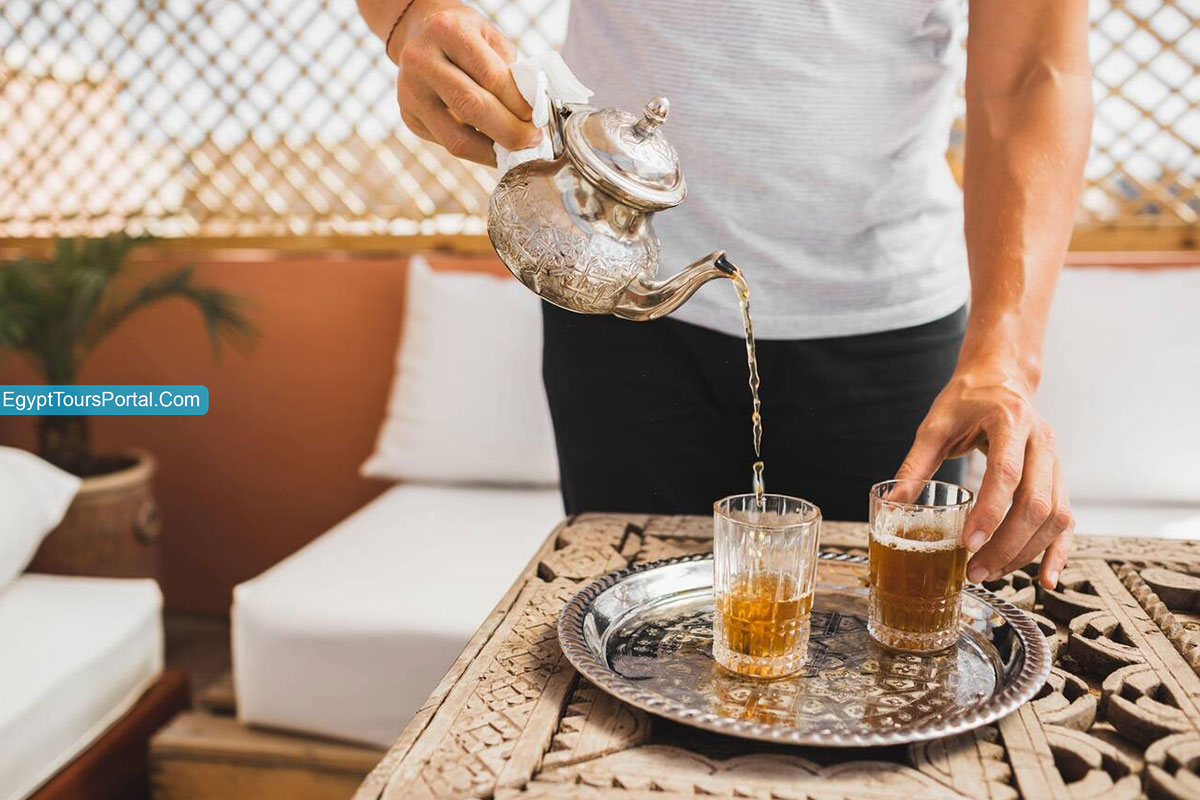
Egypt is like a magical cooking pot mixing all the incredible ideas and customs of ancient domestic and foreign lands into one majestic meal which provides a sense of warmth to every tourist who steps inside one of its cities. The Egyptian people are known for their friendly behavior towards foreigners, always ready to provide any service to their hosts.
Also, Egypt has embraced a liberal mentality due to its diverse cultural landscape and history. Hospitality is a key concept in the heart or soul of every Egyptian native as you, the Egyptians, love to interact and greet everyone with a smile as a friend or a family member, and that's one of the main reasons why Egypt is one of the top travel attractions in the world.
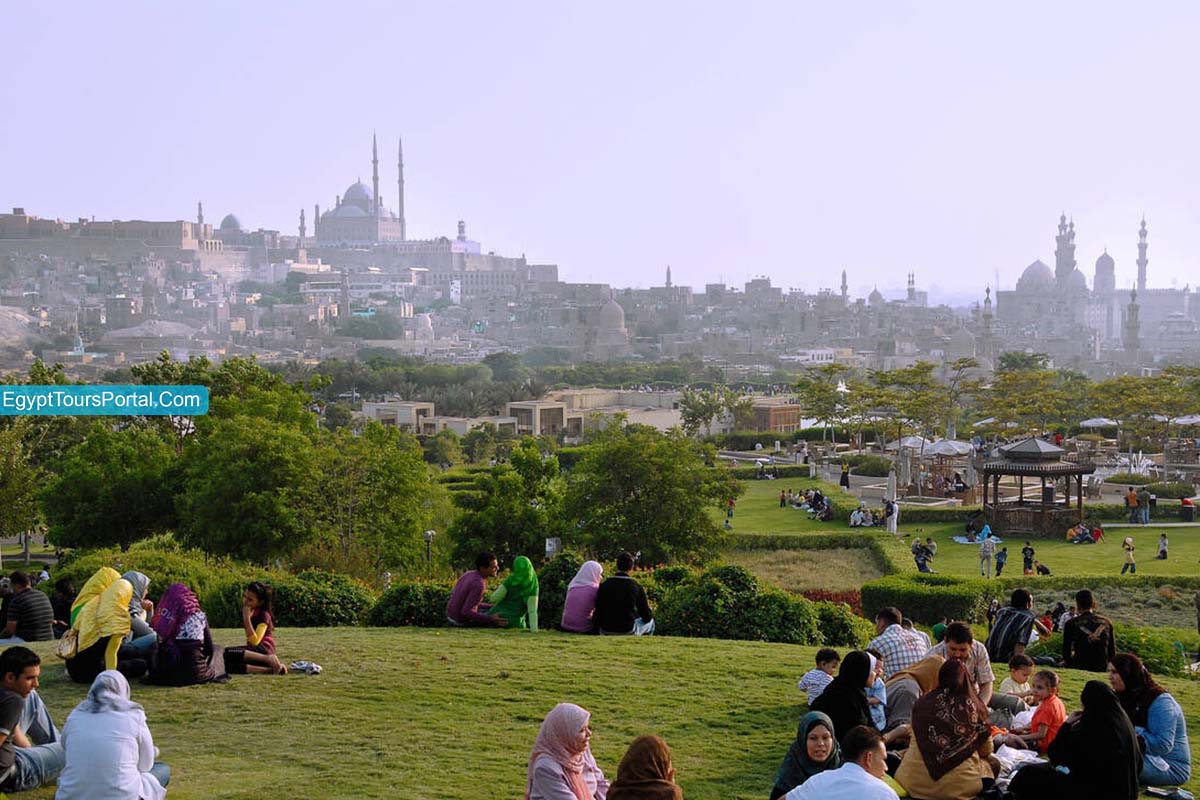
Egypt is known for having more celebrations than most countries. If any traveler is planning to spend a couple of days in Egypt, then this traveler has a very high chance of encountering some kind of celebration, which could be religious, folkloric, or contemporary.
Read more about festivals in Egypt 2024, Ramadan in Egypt 2024, public holidays in Egypt 2024, explore all you need to know in this article.
Read MoreIn them, the Egyptians pour into the streets, and major festivals of music, songs, and dance performances with delicious food and drinks take place, such as Coptic Orthodox Christmas, Abu Simbel Sun Festival (February), Coptic Orthodox Easter, Sham Ennessim, Ramadan, and Eid al-Fitr, Sandbox Music Festival, Eid al-Adha, El Hijra (Islamic New Year), Coptic Orthodox New Year (Coptic Christmas), Abu Simbel, Sun Festival (October), and Mild un Nabi.

The religious atmosphere of the city is very diverse and is embedded in most of the aspects of social life in Egypt. Islam is the official religion of Egypt, with 90% of the entire population being Sunni Muslim and 10% being Coptic. Both Muslims and Christians share a common tongue (Language), history, race, identity, culture, and Ethnicity.
Religion has always been a powerful force in shaping the mentality of ancient Egyptians as most of the famous constructions, such as the Karnak Temple Complex, Valley of the Kings, the Giza Pyramids Complex, and more, were all for winning the grace of the gods. The number of mesmerizing Egyptian Islamic landmarks and Egyptian Coptic sites built and beautifully designed across the country were built to honor their belief and way of life.
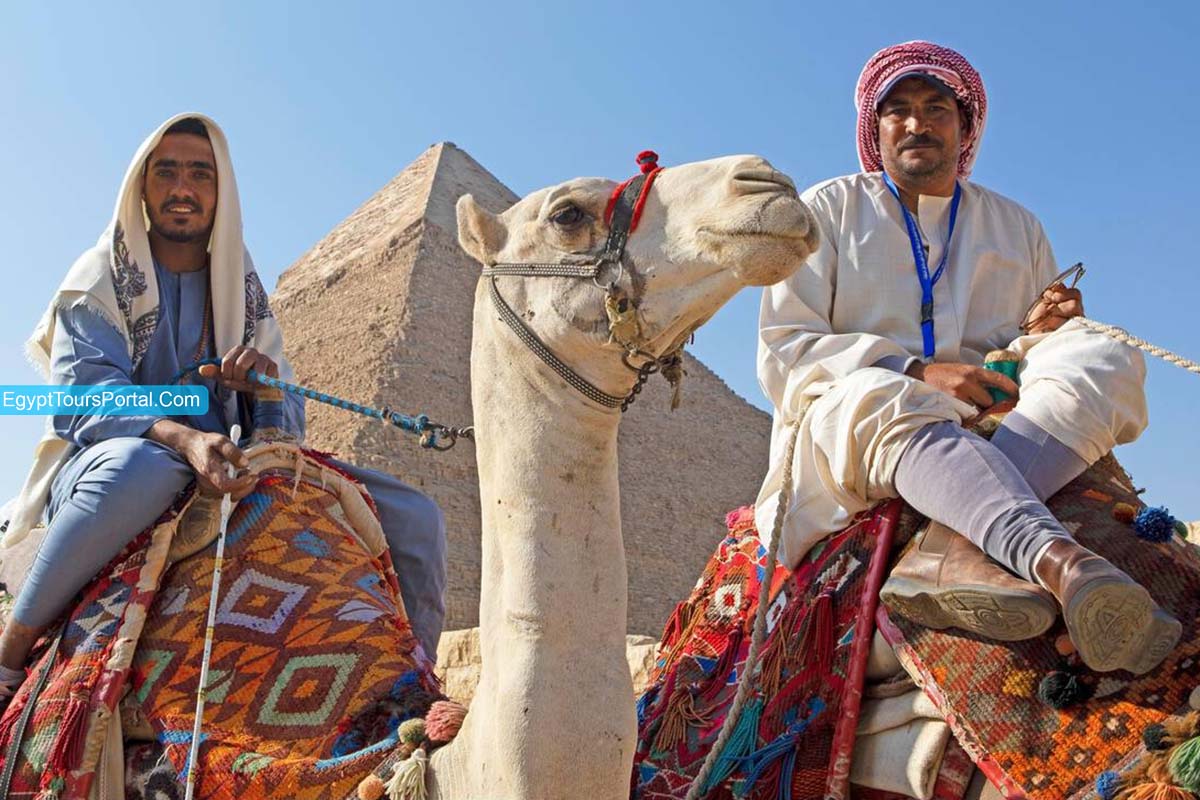
The glorious ancient history, the ideal geographic locations, and the tourist attractions make it a true global center for tourism and business. The Egyptian people are known for being very hospitable and extremely generous, which is one of the main features of Egypt. It is an awesome place to have a vacation.
They are very kind and helpful and have a loving nature that treats any stranger as if he were a member of his own family and is fully ready to welcome him into their home. This is the ethics of the Egyptians built on the principles of honor, respect, and compassion.
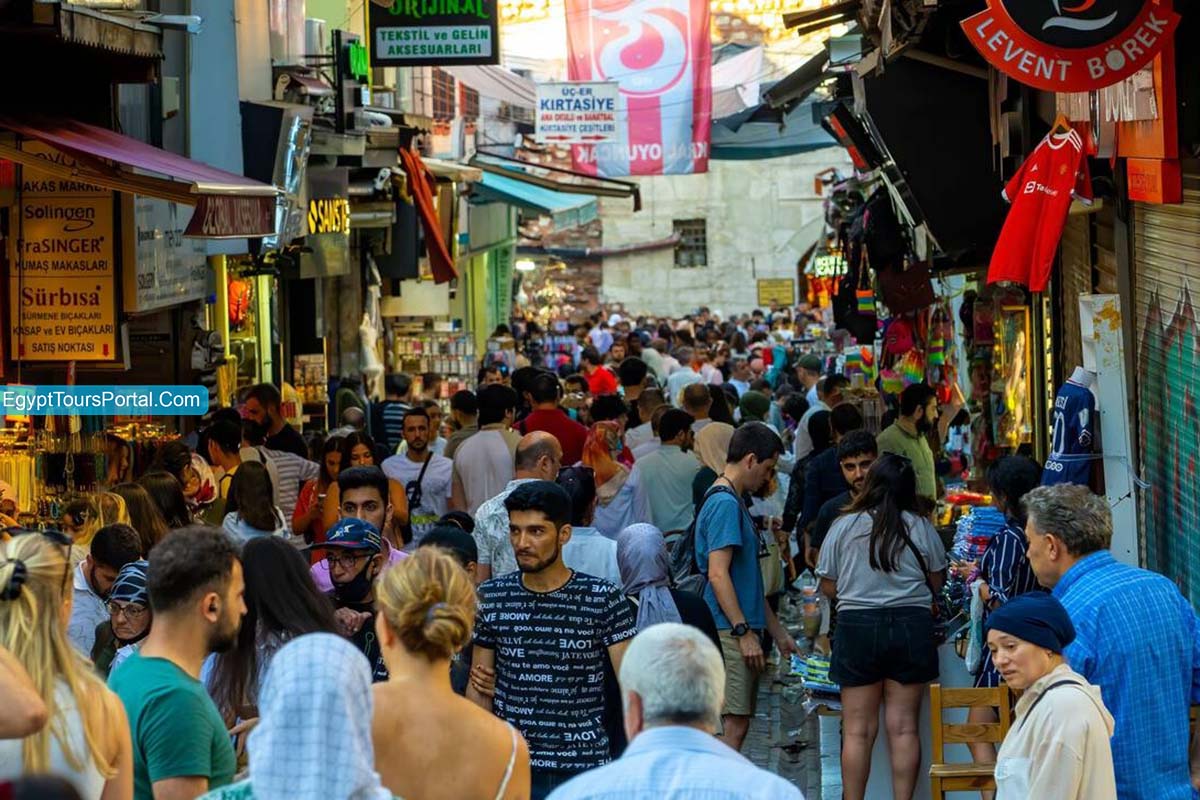
The ancient Egyptians are remembered for the quality and quantity of cultural objects. All the Egyptian Traditions represent a critical piece of their culture that helps form the structure and foundation of their families and their society. Egyptian society is built on the strong foundation of the family and the principles of maintaining a close connection with one another, even with strangers, as many foreigners could see a lot of Egyptians smiling towards you, which is a sign of good luck.
The integration of the Egyptian family is strong evidence of the family values embedded in Egyptian society, which is one of the main reasons why Egypt is safer than most destinations in the world.
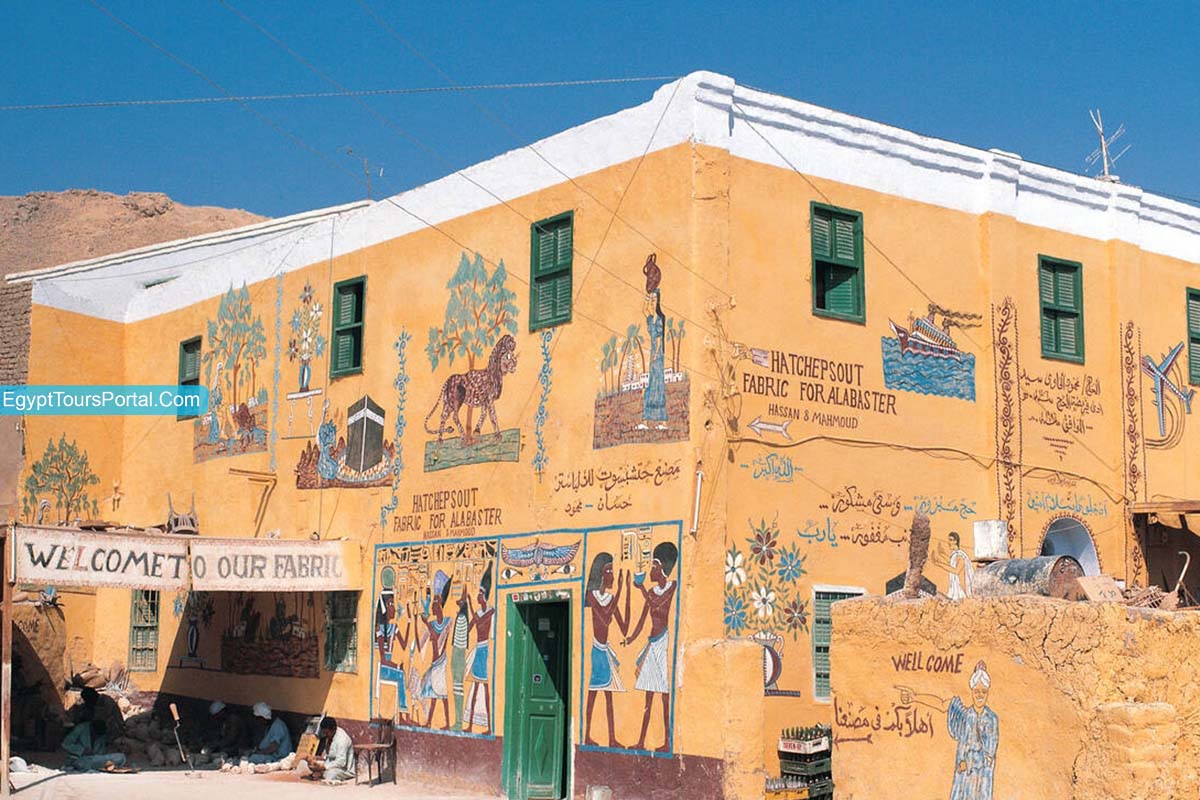
Every civilization and culture around the world has its own traditions that might be very hard to comprehend, such as:
The Mulukhiya Gasp "Shah’et El Mulukhiya" is one of the funny Egyptian kitchen traditions that occurs when Egyptian chefs cook one of Egypt's most famous dishes, which is a dish of vegetables mixed with leaves of Corchorus Olitorius. The ideal way to perfect the taste is by adding garlic to the pot. Then, the cook would inhale suddenly with their mouth open and create a sound of astonishment, which will make the taste just right.
One of the many funny beliefs among the Egyptians is that when the visitor of an Egyptian family is offered a glass of juice, then that person doesn't finish, and then the daughters of these families won't get married. Sounds very ridiculous, I know.
One of the many customs in Egyptian society is "3ozomet Marakbiya" which is a tradition that is when someone invites you for food or drinks, but they don’t really mean it the moment it is said. The meaning behind this expression can be traced to two people, each in a boat not that far from the other, and then one of the two invites the other for food or drinks or anything else. Marakbiya originates from the Arabic word "Markb" which means "Boat". It is a very common request among Egyptians, who say it on countless occasions. It’s a kind gesture unlikely to be accepted.
Discover the top ten Arabic words to help to enjoy the perfect holiday in the land of pharaohs and experience the true spirit of the language
Read MoreSome Egyptians believe that the burying of a weasel at their doorstep will gift them massive wealth, prosperity, and a better life.
One of the oldest beliefs in Egypt is when going into a new place like a house, for example, you should enter with your right leg. Many carvings, wall images, and statues are designed with the right leg one step forward.
The spilling of coffee or red tea, one of the most common drinks in all of Egypt, is a good omen, a good sign that amazingly positive things are about to happen.
One of the more unusual and weird beliefs in Egypt is when the ancient Egyptians observe a turned slipper; they put the slipper back to its right position as they believe that the turned slip brings the devil inside the house.
One of the many things Egyptians say in Egypt when great and good things are about to happen, or how impressed, amazed, or blessed they are, they would say "Hold the Wood" to prevent Envy.
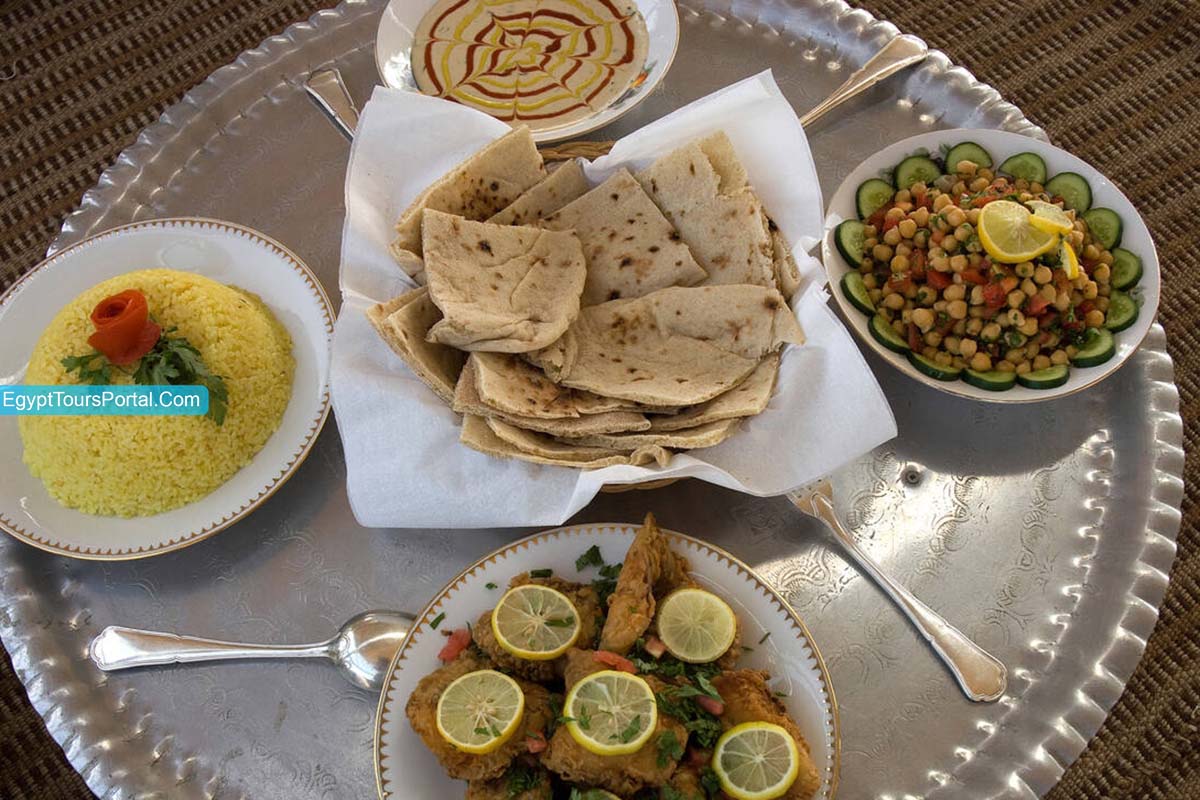
Egyptian cuisine has a long history that reflects a blend of ingredients from the Nile Valley and Delta, which rely heavily on poultry, legumes, vegetables, and fruits. Staple dishes like rice-stuffed veggies, grape leaves, ful medames (mashed fava beans), falafel, kosher (lentils and pasta), kebab, kofta, shawarma, and molokhia (bush okra stew) are popular. Eish baladi is a local type of pita bread, which is a dietary mainstay, and Domiati cheese that dates back to ancient Egypt and remains widely consumed. Egyptian cuisine relies heavily on vegetables and legumes, with spices like cumin, coriander, chili, and cinnamon lending flavor. Cheese, particularly Domiati, plays a vital role in many dishes.
Egyptian cuisines balance legumes and vegetables with meats like squab, chicken, lamb, and occasionally beef, often used for grilling. Offal, including foie gras, serves as fast food and delicacies, with seafood prevalent in coastal areas. Vegetarian options are abundant due to historical meat prices and the dietary requirements of the Coptic Christian community. Tea is Egypt's national drink, which can be taken many times across the day and through all the coffee and tea houses. Desserts like Basbousa, baqlawa, and kunafa incorporate honey, dates, and almonds. Spices like cumin, coriander, cardamom, and chili are central to Egyptian cooking, influenced by the historical spice trade via Red Sea ports. Fasting periods influence food practices as Ramadan brings specific desserts and traditions like karkadeh that hold a significant cultural place, while coffee, juices, and cold beverages have their roles in the culinary scene. The cuisine's versatility accommodates both meat-based and vegetarian preferences, incorporating rich flavors from a variety of ingredients and spices.

Because of the rich culture of Egypt, Egyptian clothing has varied in many different shapes, forms, and colors. During the history of ancient Egypt, traditional clothing could be seen across temples, walls, and tombs, wearing loincloths or skirts and long shirts, while women wore wrapped dresses or sheaths. Both genders adorned themselves with jewelry and makeup. Footwear was made of papyrus or leather, though being barefoot didn't always signify poverty. Jewelry and amulets were significant for protection.
In modern times, the traditional Egyptian dress for men features the Gallibaya, which is often paired with trousers and a headdress, while women wear layered, loose clothing and head coverings. The Gallibaya is a baggy long shirt that is a staple for both genders, with men's being simpler and women's more colorful & decorated. The Hijab is also a common head coverage that is popular in all Islamic countries, which is only worn by women if they choose to. Different regions and seasons influence the fabric and layering of clothing. Bedouin women typically wear black embroidered dresses, and married women wear a black cloth around their forehead. Bedouin men wear Gallibayas and a kufiyya (headcloth), indicating social position.
The Nubians of Egypt had their own clothing and traditions. Nubian men wore white robes or linen skirts, while women wore layered black dresses over colorful garments. Their relocation and cultural identity set them apart. Dressing conservatively is recommended, especially for women, covering shoulders and knees. Loose-fitting clothing in fabrics like linen and cotton is ideal for the hot weather. Packing a scarf for mosque visits and avoiding very white clothing due to desert dust are also suggested.
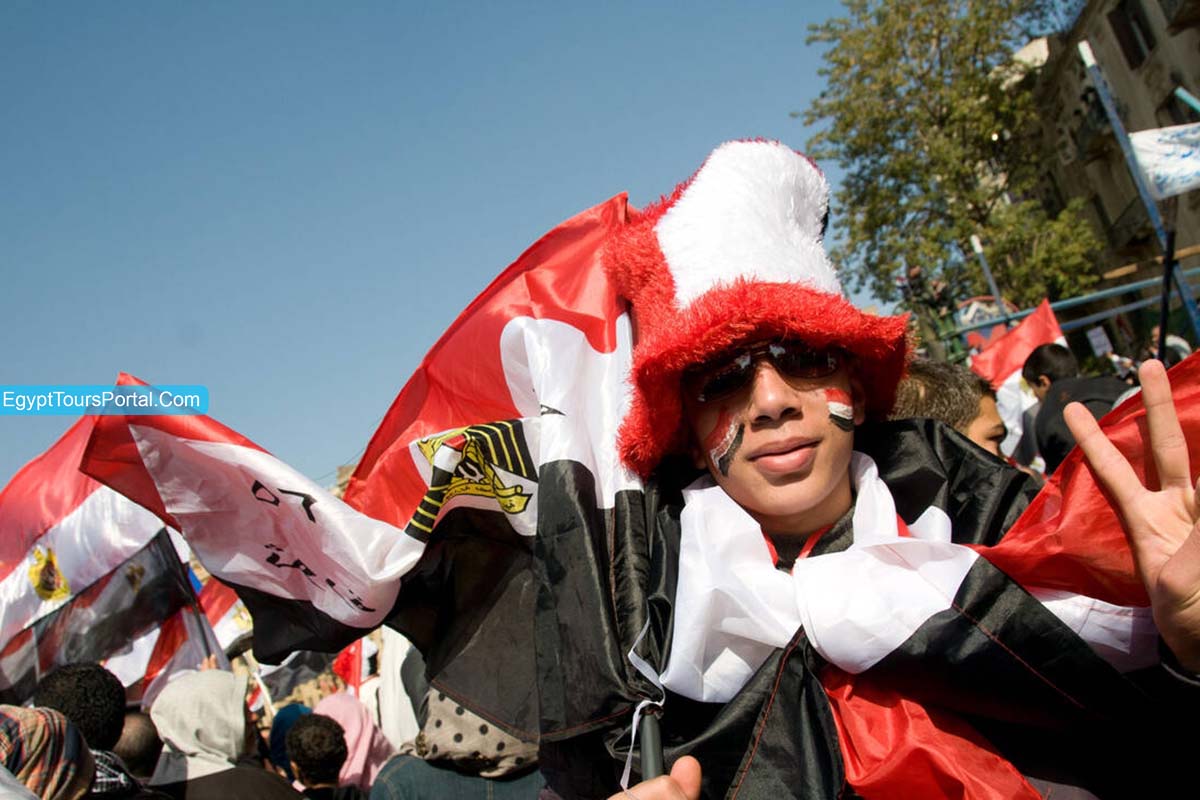
Egypt has a complex political culture which is influenced by its long history, different governance structures, and societal values. The country has seen various forms of government, including monarchies, republics, and military rule. All of his contemporary politics are shaped by a mix of authoritarianism, ideologies, political activism, and socio-economic factors. The political spectrum of Egypt has a long history, which was linked by a number of factors like a centralized power that held authoritarian governance structures, and the Egyptian military has played a significant role in the country's politics, often influencing or directly governing the state.
During the history of Egypt, many revolutionary movements took place, such as the 2011 Arab Spring uprising that led to the overthrow of President Hosni Mubarak. Islam has had a significant impact on Egypt's political culture and led to the rise of many political movements. Egypt's political culture is deeply influenced by its geopolitical significance in the Middle East and North Africa, leading to complex relationships with neighboring countries and global powers. Egypt's foreign policy decisions, alliances, and diplomatic relations impact its domestic political landscape.
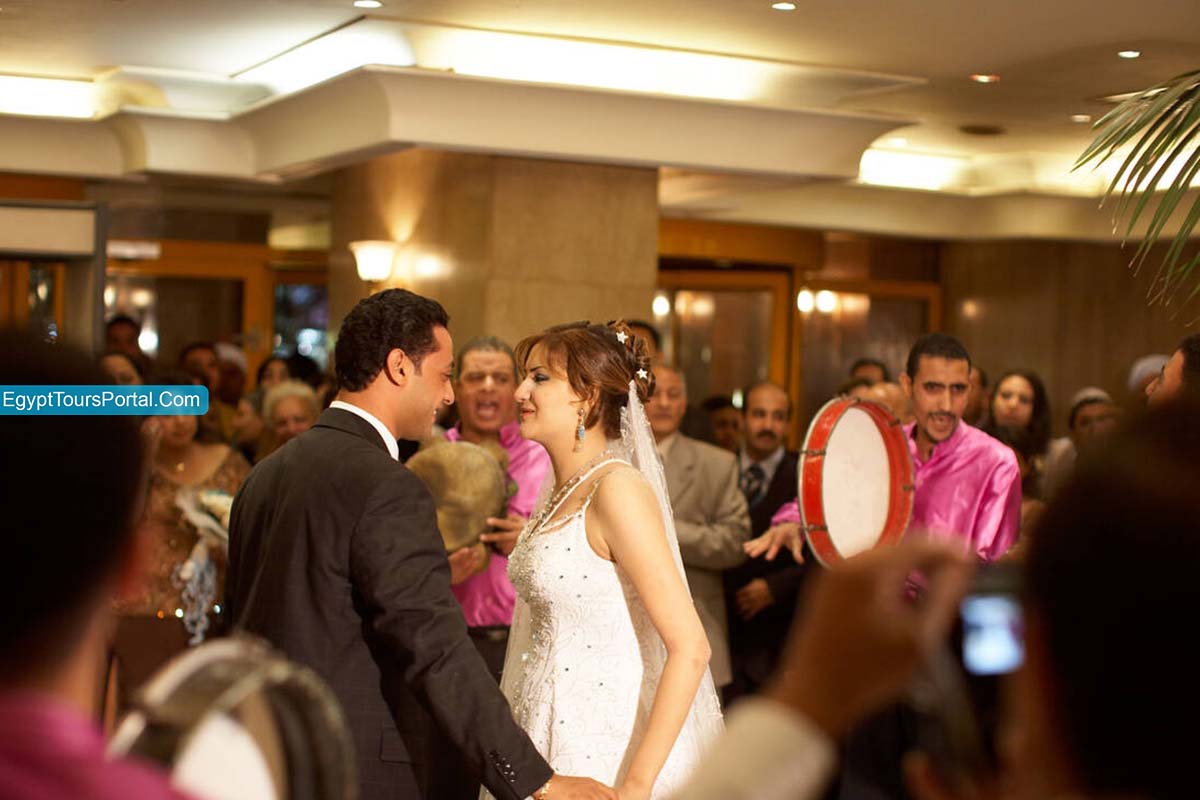
The culture of Egypt towards dating and marriage is straightforward as it seeks to create a holy union that will strengthen and advance the entire society of Egypt. Dating isn't widely practiced in Egypt, although in urban areas, some Egyptians, influenced by Western values, are changing their attitudes. The concept of "Purity", especially concerning women, holds significant importance in marriage arrangements. Families arranged marriages with minimal input from the couple. Individuals have more say in their marriage choices, but family involvement and the use of matchmakers still play a role. Marriages often happen within similar age groups, education levels, social classes, and religious backgrounds. Arranged marriages are known to happen in Egyptian society.
Egyptian weddings maintain deep-rooted traditions stemming from ancient times. The marriage agreement involves the "mahr" (a groom's payment to the bride's family) and "shabka" (jewelry for the bride). The engagement period allows the couple time to bond, often celebrated with elaborate decorations. Symbolic wedding rings trace their significance back to Ancient Egypt, thus representing eternity. Preceding the ceremony is the Henna night, an adorned celebration for the bride with female relatives and friends, featuring themed attire. The wedding itself starts with a festive car parade leading to the reception venue, where a lively "Zaffa" welcomes the couple with belly dancers and drummers.
Christian ceremonies take place in churches, while Muslims have the "Katb el Katb" performed by a Maa’zoun in a mosque or at home, where contractual terms like "Moa’khar" (divorce settlement) are included. The celebration involves cutting a multi-layered cake, the bride tossing her bouquet, and indulging in "Sharbat" a sweet drink made from fruits and herbs. These customs reflect a blend of historical and modern elements, creating a memorable wedding experience in Egypt.
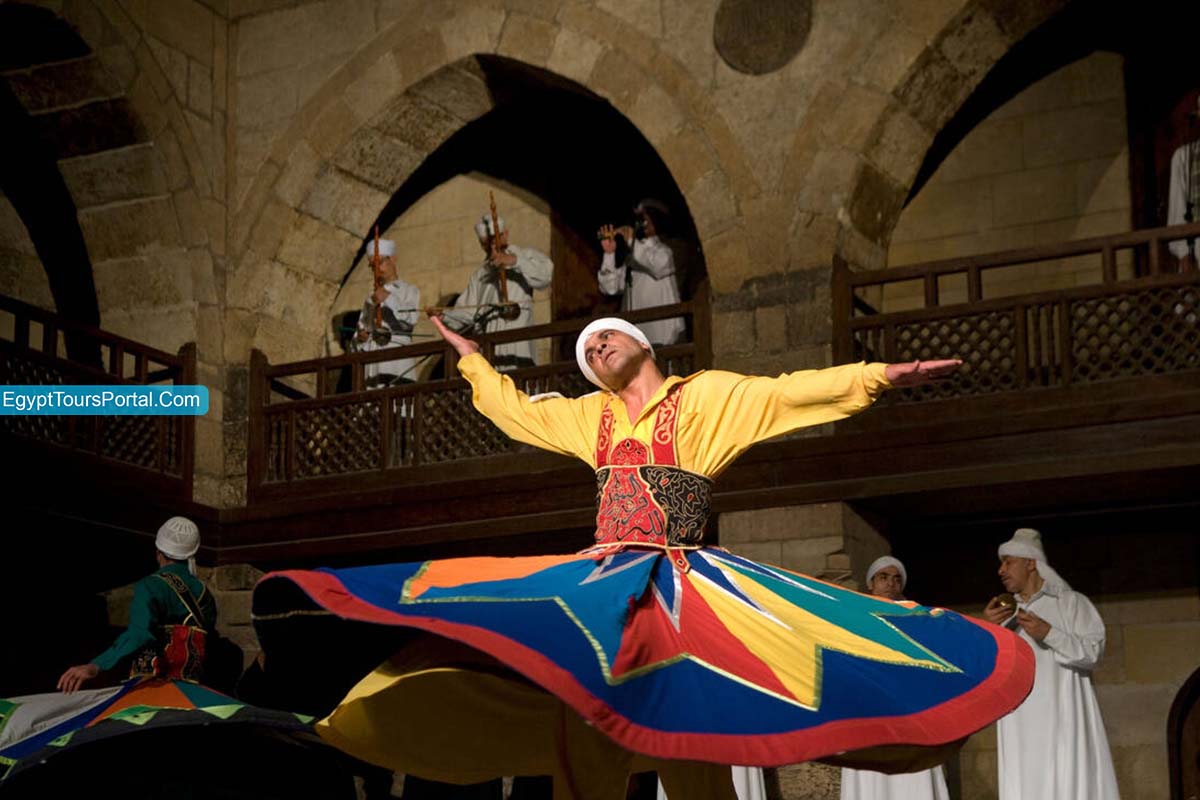
Egypt's folk culture is a rich creation of centuries of traditions, customs, and beliefs which is constructed of a wide array of practices, including music, dance, storytelling, cuisine, and festivals that are deeply rooted in the country's history and heritage. Music and dance hold a prominent place in Egyptian folk culture where traditional instruments like the oud, tabla, and flute accompany various dance forms, such as the lively and rhythmic "Tanoura" dance or the elegant "Raqs Baladi" (belly dance), each telling stories and reflecting different aspects of Egyptian life. The art of ancient Egyptian Storytelling has been a cherished tradition, passing down myths, legends, and moral tales through generations. These stories often reflected cultural values, heroism, and societal norms.
The cuisine is a significant part of folk culture, with dishes like "Koshari", "Ful Medames", "Shawarama", and "Ta'meya" showcasing a blend of flavors and influences from ancient Egyptian, Mediterranean, and Middle Eastern cuisines. Festivals and celebrations play a pivotal role in marking religious occasions, agricultural events, or commemorating historical moments. "Moulid" celebrations honoring saints, "Sham el-Nessim" marking the arrival of spring, and "Eid al-Fitr" and "Eid al-Adha" are deeply ingrained in the cultural fabric. The colorful mosaic of Egypt's folk culture located all over the country can connect Egypt's past with the present and serve as a testament to the nation's enduring traditions and identity.
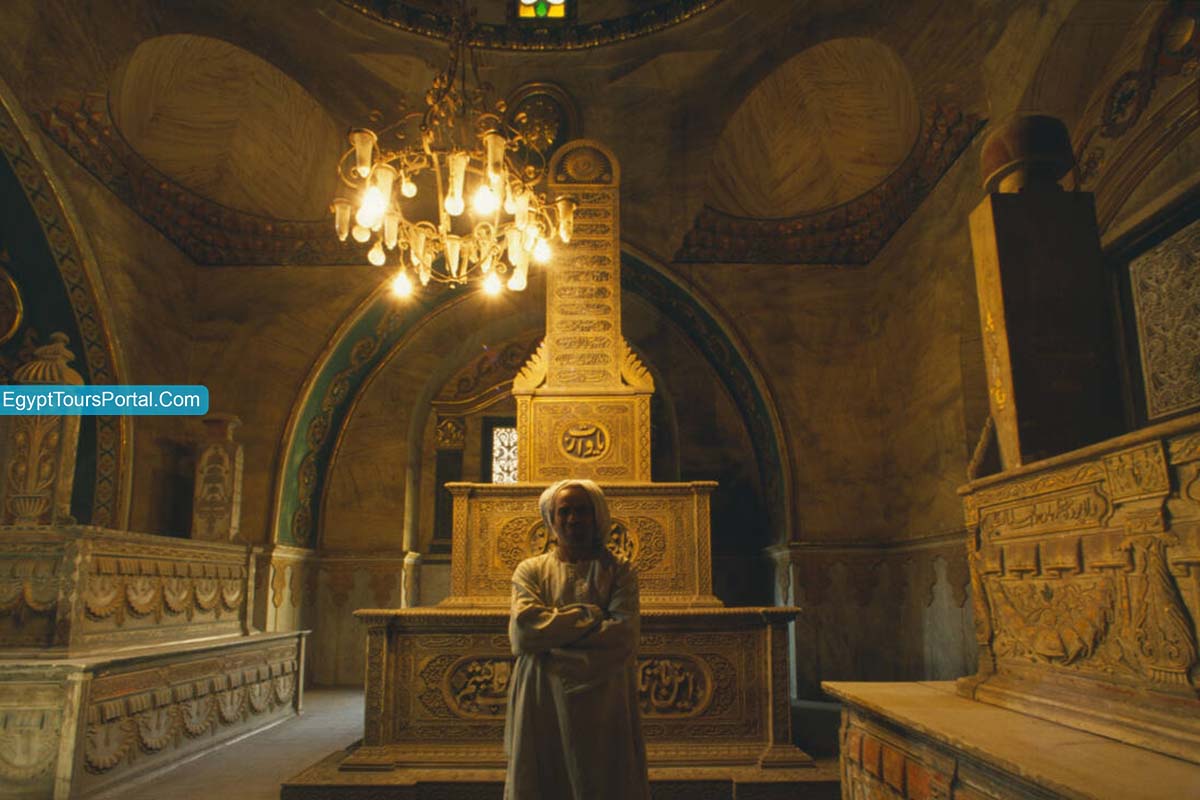
Egypt's death culture reflects a blend of ancient beliefs, religious traditions, and contemporary practices. Despite modern influences, many aspects of mourning, burial, and commemoration remain deeply rooted in cultural and religious significance, providing comfort and support to grieving families. The ancient Egyptians had a unique relationship with death that impacted their entire life as around 2800 BC, they focused on the afterlife and began constructing elaborate pyramids and tombs to ensure safe passage for their pharaohs and their royal subjects. They believed in eternal life for the spirit, the "Ka" which required careful preparations called the opening of the mouth and the mummification process to sustain the Ka in the afterlife. They buried people with items necessary for their spirit's journey, like food, clothes, and weapons. Egyptians have maintained a perspective that life extends beyond death. This belief system evolved and incorporated many concepts of judgment and punishment in the afterlife, which can be seen across all the temples and tombs.
With the rise of Christianity, there was a shift from preparing the body for eternity to focusing on the soul. Devout Christians abandoned material possessions and adopted ascetic lifestyles. Ancient temples were repurposed for monastic life. Later, Islam arrived in Egypt, leading to a blending of traditions. Most Egyptians are Muslim, believing in judgment based on deeds but also trusting in God's mercy. Islam forbids embalming and extravagant burial monuments, but historical leaders found ways to incorporate their burial sites into community establishments like mosques, schools, or hospitals. Upon death in Islam, the body is ritually washed, shrouded in white cloth, and prepared for burial. Islamic tradition emphasizes a swift burial, ideally within 24 hours of death. Cemeteries, such as Cairo City of the Dead, hold significant cultural and religious importance. Mourning lasts for 40 days, during which family and friends gather to offer condolences, recite prayers, and support the bereaved. Families often commemorate the deceased on anniversaries through prayers, charitable acts, or gatherings. Christian communities like the Copts have their own distinct death rituals and traditions, often involving prayers, church services, and specific burial customs.

Egyptian Christmas traditions have been rooted in ancient Egyptian customs for ages, where palm trees were used to symbolize the year's end at the winter solstice, similar to our Christmas tree tradition. The day also coincided with the birthdays of Egyptian sun deities. Despite being a predominantly Muslim country, Egypt embraces the Christmas spirit, providing a range of activities for tourists. Cruises along the Nile, visits to famous sites, shopping in Egypt, and enjoying local cuisine contribute to a memorable holiday experience. Whether enjoying the festive atmosphere or exploring historical wonders, spending Christmas in Egypt offers a unique blend of traditions and experiences.
Collection of Egypt Christmas holidays and tours at New Year 2024, check our wide variety of Christmas holidays to Egypt and book now!!!
Read MoreCoptic Christmas on January 7th was also celebrated during the sacred month of Kiahk, which involved special liturgies every Saturday and a 43-day vegan fast before Christmas. Traditional celebrations include church decorations, a midnight service on Christmas Eve, and a special meal called Fata with a sweet traditional treat called Kahk. Tourists often celebrate Christmas and New Year in Egypt at the Red Sea resorts of Hurghada, Marsa Alam, and Sharm El Sheikh. Hotels host festive events with decorations, dinners, and entertainment. The country’s landmarks, like the pyramids and temples in Luxor, become focal points for celebrations. December in Egypt offers mild temperatures, making it a favorable time to explore the historical and cultural cities of Cairo, Luxor, and Hurghada. Excursions to historical sites, desert trips, and diving experiences are popular during this holy time.
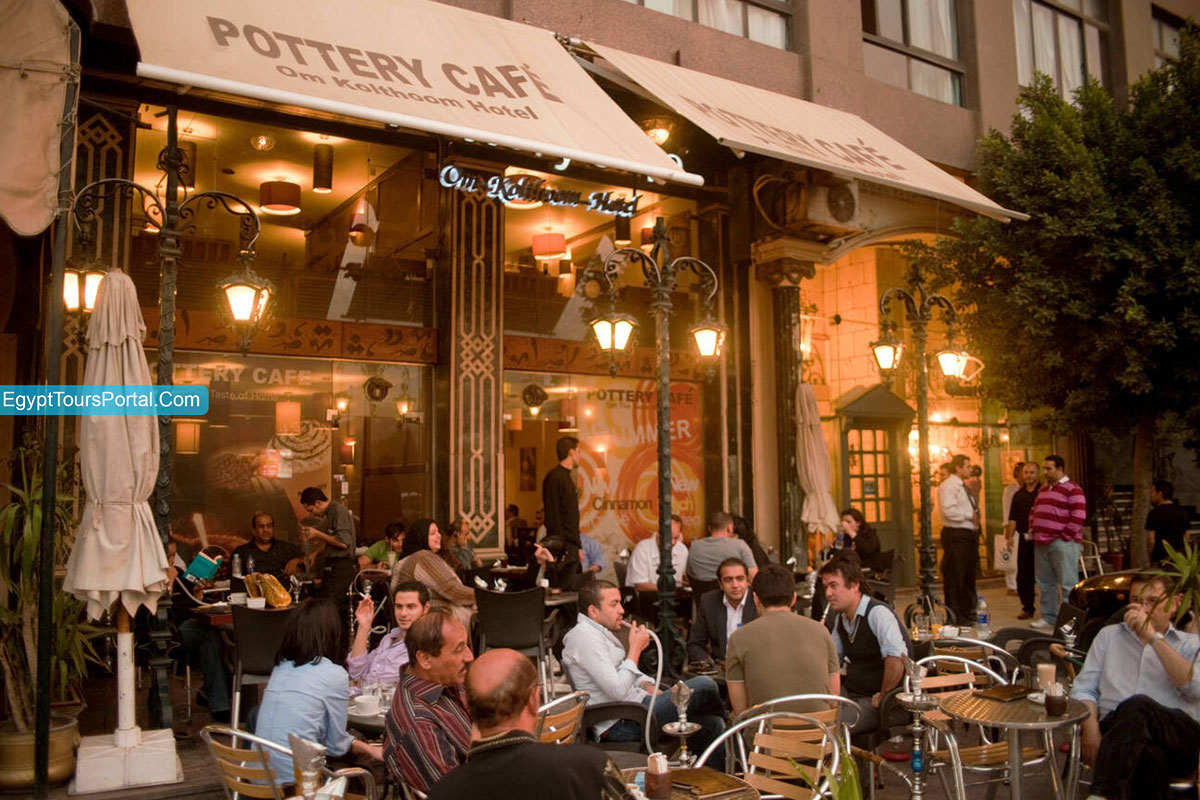
Egypt is an awesome place filled with miracles & wonders on every corner, and behind every word is an ancient tale that can be traced to thousands of years ago. The finest vacation can always be found in the embrace of one of the kindest and most hospitable places on earth, Egypt. Don't miss the chance to book the best Egypt Classic tour packages and the Nile River Cruises to explore the magical places in Egypt now.
A Memorable Week in Egypt Group Tour for American Travelers 7 days culture & rec...
Tour Location: Cairo - Luxor - Hurghada...
Experience Egypt Cultural Sightseeing in 10 Days for American Travelers Ten days Egy...
Tour Location: Cairo – Luxor – Aswa...
Stunning 13 Days Culture Trip to Egypt for American Travelers 13 Days Culture Trip t...
Tour Location: Cairo – Alexandria –...
13 Days Cairo, Alexandria, Luxor, Aswan & Hurghada Tour for American Group 13 Da...
Tour Location: Cairo - Luxor - Aswan - ...









